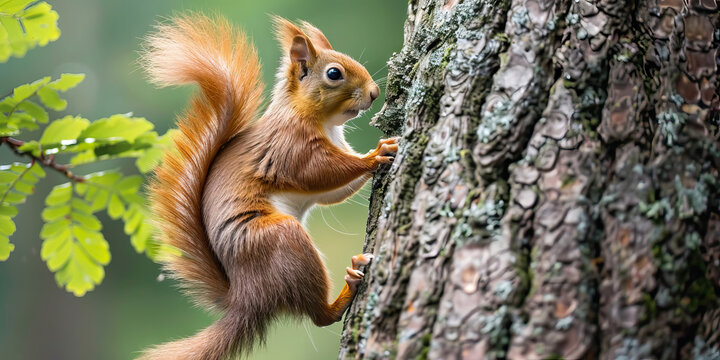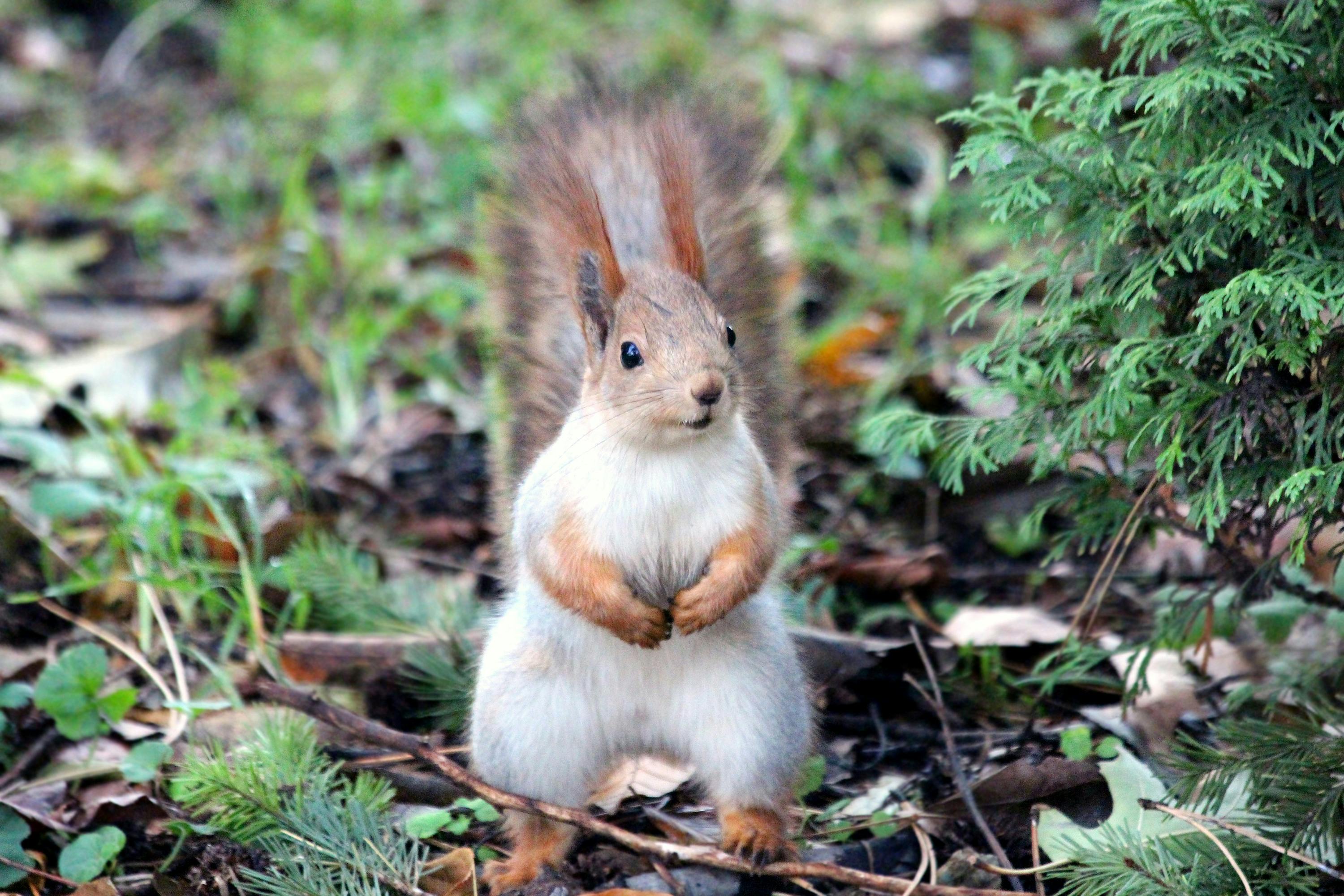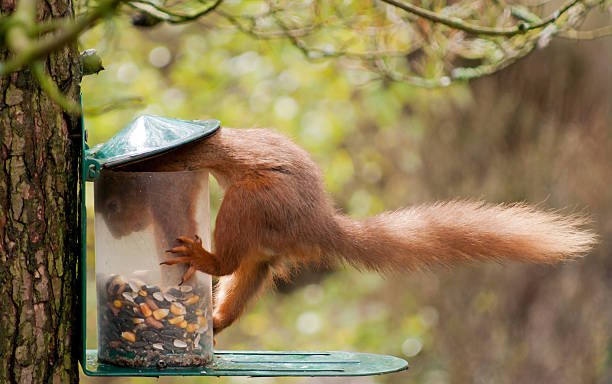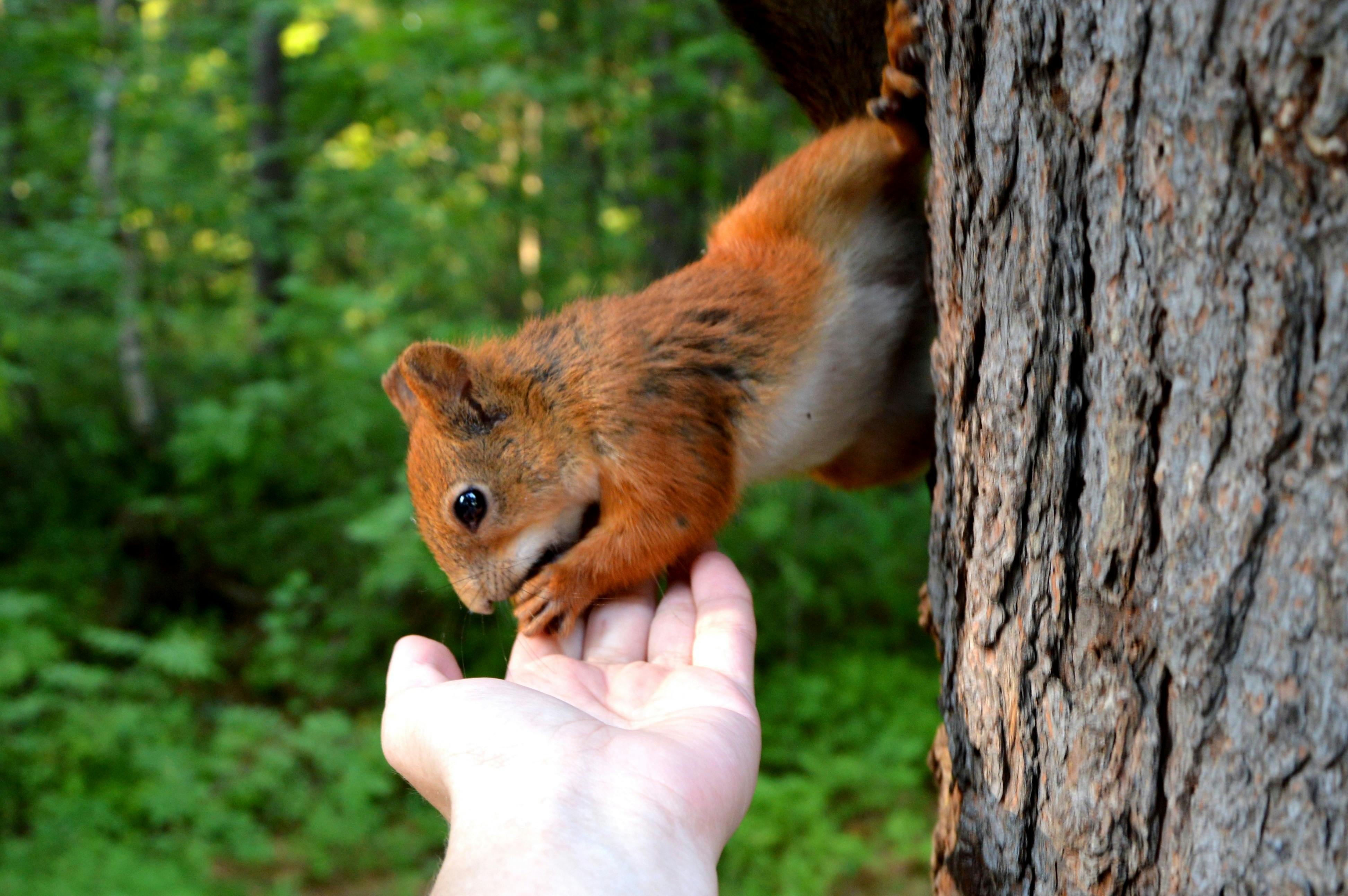Have you ever paused to wonder just how clever those bushy-tailed creatures darting through your backyard really are? The question of whether squirrels possess true intelligence has intrigued scientists and nature lovers alike. In this article, we’ll explore Are Squirrels Smart? to uncover surprising insights.
Squirrels are more than just nimble acrobats; they exhibit fascinating behaviors linked to problem-solving skills and impressive memory abilities. From hiding food caches to navigating complex environments, these little mammals demonstrate cognitive traits that challenge what we typically expect from wildlife.
Understanding squirrel intelligence not only sheds light on their survival strategies but also reveals how they adapt to urban life and changing ecosystems. This journey into their world will highlight the remarkable ways squirrels learn, communicate, and even outsmart challenges.
Discover the captivating world of Are Squirrels Smart? And just how smart are squirrels? Prepare to go deep into their cleverness, memory, and problem-solving prowess.
Table of Contents
ToggleAre Squirrels Smart & Intelligent?
Yes, squirrels are considered to be quite intelligent animals. Here's why:
- Problem-solving skills: Squirrels are adept at figuring out how to access food sources, even when obstacles are in their way. They can learn to open bird feeders designed to deter them, navigate mazes, and even manipulate objects to get what they want.
- Memory: They have impressive spatial memory, remembering the locations of hundreds of buried nuts for months. They also demonstrate long-term memory for problem-solving techniques, recalling how to solve puzzles nearly two years later.
- Adaptability: Squirrels are highly adaptable and can thrive in various environments, including urban areas. They learn to navigate human-dominated landscapes, find food and shelter, and even exploit human behavior to their advantage.
- Deception: Some studies suggest that squirrels engage in deceptive behavior. They might pretend to bury food in one location while actually hiding it in another to mislead potential thieves.
- Learning: Squirrels can learn from experience and observation. They can quickly adapt to new situations and even learn from other squirrels.
- Communication: They use a variety of vocalizations and tail signals to communicate with each other, warning of danger or indicating the presence of food.

Comparisons to Other Animals:
- Some experts consider squirrel intelligence to be on par with some primates in terms of agility and problem-solving.
- Studies have shown that grey squirrels are better at solving complex problems and exhibit more behavioral flexibility than red squirrels.
- While not as intelligent as animals like dolphins, elephants, and great apes, they are generally considered smarter than animals like dogs and cats.
Squirrels exhibit a range of cognitive abilities that demonstrate a significant level of intelligence, allowing them to survive and thrive in diverse and challenging environments.
Defining Intelligence in the Animal Kingdom
The Elusive Nature of Animal Intelligence
What exactly does it mean for an animal to be intelligent? It's a tricky question, as intelligence isn't a one-size-fits-all concept. What works for a primate might look very different in a squirrel. Scientists consider various cognitive abilities when assessing animal cognition across species.

Key Aspects of Cognitive Abilities
Several factors help us understand how different animals think and learn. These include their capacity for problem-solving skills, their ability to remember things (like where they hid food), and how well they can learn and adapt to new situations. Even how they communicate can offer clues about their intelligence.
Understanding Problem-Solving Skills
This involves figuring out how to overcome obstacles to reach a goal, like getting to a tasty nut behind a barrier. Observing how creatively an animal tackles a new challenge can reveal a lot about its cognitive flexibility and learning capacity.
The Importance of Memory
Memory plays a crucial role in survival. For squirrels, spatial memory, the ability to remember locations, is particularly important for finding their buried treasures. They might also possess other forms of memory, helping them recall safe routes or past dangers.
Learning and Adaptation in Action
Animals constantly encounter new situations. Their ability to learn from these experiences and adjust their behavior accordingly is a key indicator of intelligence. This behavioral adaptation allows them to thrive in changing environments.
Exploring Animal Communication
How animals communicate with each other can also hint at their cognitive complexity. While squirrel communication might seem simple, their vocalizations and body language likely convey important information within their social groups.
Are Squirrels Smart? Problem-Solving Prowess
Squirrels vs. Obstacles: A Test of Wits
One of the most compelling pieces of evidence for squirrel intelligence lies in their remarkable problem-solving abilities. They constantly encounter challenges in their quest for food, and their creative solutions often leave us in awe. Think about those "squirrel-proof" bird feeders – they rarely stay proof for long.
Mastering the Art of the Bird Feeder
Squirrels have become notorious for their ingenuity in bypassing even the most intricate bird feeder designs. They'll climb, jump, stretch, and even use their body weight in surprising ways to access those seeds. This persistent effort and varied techniques highlight their capacity for cognitive flexibility.

Opening the Unopenable: Container Capers
It's not just bird feeders either. Squirrels have been observed figuring out how to open containers, untie knots, and manipulate latches to get to a tasty treat inside. These instances of innovative behavior suggest they aren't just acting on instinct but are actively thinking through the problem.
Reaching the Unreachable: Resourcefulness in Foraging
Whether it's stretching across a gap, balancing on thin branches, or finding a hidden route, squirrels demonstrate incredible resourcefulness in reaching seemingly inaccessible food sources. This highlights their ability to assess their environment and devise novel strategies for food acquisition.
Scientific Observations of Animal Problem Solving
While anecdotal evidence is fascinating, some studies have also explored squirrel problem-solving in controlled settings. These experiments often involve presenting squirrels with novel challenges and observing their methods of finding solutions, providing further insight into their cognitive processes.

The Impressive Memory of Squirrels
Masters of Spatial Memory: The Nutty Professor
Beyond their problem-solving skills, squirrels possess a truly remarkable memory, particularly when it comes to remembering where they've stashed their food. This incredible feat of spatial cognition is essential for their survival, especially during the lean winter months.
The Art of Scatter Hoarding
Squirrels employ a strategy called scatter hoarding, where they bury individual nuts in numerous locations. Imagine trying to remember the exact spot of dozens, even hundreds, of buried treasures. Yet, they manage to retrieve a significant portion of their hidden bounty.
Unearthing Hidden Gems: Recalling Burial Sites
Studies suggest that squirrels use spatial cues and landmarks to remember the general areas where they buried nuts. While they might not recall every single spot, their accuracy in finding a substantial amount of their caches is a testament to their impressive memory retention.
How Many Nuts Can They Remember?
Estimates vary, but some research indicates that squirrels can bury and later retrieve hundreds, even thousands, of nuts in a single season. This requires a sophisticated level of cognitive mapping and recall, far beyond simple instinctual behavior.
Beyond Location: Other Forms of Squirrel Memory
While their spatial memory for food is the most well-known, squirrels likely utilize other forms of memory as well. They might remember routes to reliable food sources, locations where they encountered danger, or even the faces (or at least the behaviors) of familiar humans or predators.
Learning and Adaptation in Squirrel Behavior
Experience is the Best Teacher: Squirrel Style
Squirrels aren't just born with all the answers; they learn and adapt based on their experiences. This behavioral learning is crucial for their survival in a constantly changing world. They quickly pick up on patterns and adjust their strategies accordingly.
Avoiding Danger: Lessons Learned the Hard Way
If a squirrel has a negative encounter in a particular location, say a close call with a predator or a failed attempt to reach food, they're likely to avoid that situation in the future. This demonstrates their capacity for associative learning and remembering potential threats.
Adapting Foraging Strategies: Following the Food
Squirrels are opportunistic eaters, and their foraging behavior adapts to the availability of different food sources throughout the year. They learn when and where certain nuts, berries, or even human-provided snacks are most abundant, showcasing their environmental adaptation.
Urban Squirrels: Masters of City Life
Perhaps one of the most striking examples of squirrel adaptation is their success in urban environments. They learn human routines, like garbage collection days, and figure out how to navigate busy streets and utilize human infrastructure to their advantage. This highlights their impressive urban adaptation skills.
Observing Human Habits: A Survival Tactic
City squirrels often learn our habits, such as when we're likely to leave out food or when certain areas are less populated. This observational learning allows them to exploit resources effectively and avoid potential dangers associated with human activity.
Communication and Social Intelligence (if applicable)
Whispers and Signals: The Language of Squirrels
While often seen as solitary creatures, squirrels do engage in animal communication. They use a variety of vocalizations and body language to convey information to one another. Understanding these signals can offer insights into their potential for social intelligence.
The Meaning Behind the Sounds: Squirrel Vocalizations
You might have heard squirrels make chirping, barking, or chattering sounds. These vocal signals can serve different purposes, such as warning others of danger, indicating territorial boundaries, or even communicating during mating season. The nuances of these calls are still being studied.
Tails That Talk: The Role of Body Language
Squirrels also use their tails and body posture to communicate. A flicking tail can signal agitation or alarm, while a raised tail might indicate dominance. Observing these nonverbal cues can provide clues about their social interactions and emotional states.
Social Learning: Picking Up Skills From Others
While not as pronounced as in highly social animals, there might be instances of social learning in squirrels. Young squirrels could potentially learn foraging techniques or predator avoidance strategies by observing their mothers or other adult squirrels.
Cooperation or Competition? Understanding Social Behavior
Squirrels are generally considered more solitary than cooperative. However, there might be subtle forms of social interaction, especially among related individuals. Further research is needed to fully understand the complexities of their social lives and any potential for cooperative behaviors.
Debunking Myths and Addressing Misconceptions
Beyond Instinct: Recognizing Squirrel Intelligence
It's easy to dismiss squirrel behavior as purely instinctual. While instinct certainly plays a role in their survival, attributing all their actions to it overlooks the clear evidence of cognitive processing and learning we've discussed. Their adaptability goes beyond pre-programmed responses.
Are They Just Lucky? The Role of Problem Solving
When a squirrel outsmarts a complex feeder, it's not simply luck. It involves observation, trial and error, and the application of learned knowledge. This active environmental interaction and problem-solving suggests a level of intelligence at play.
Comparing Squirrel Smarts: A Matter of Scale
It's important to avoid directly comparing squirrel intelligence to that of primates or other highly intelligent animals. Different species have evolved cognitive abilities that suit their specific ecological niches. Squirrel intelligence is perfectly adapted to their needs for survival and resource management.
The Complexity of Animal Behavior
Understanding animal behavior requires acknowledging the interplay between instinct and learning. In squirrels, we see a fascinating blend of both, with their innate drives being modified and enhanced by their experiences and their capacity to solve novel problems.
Appreciating Their Unique Cognitive Abilities
Instead of underestimating them, we should appreciate the unique cognitive abilities that allow squirrels to thrive in diverse environments. Their memory, problem-solving skills, and adaptability are testaments to their cleverness in their own right.
Conclusion
Summing Up the Squirrel Saga
Throughout our exploration, we've uncovered compelling evidence suggesting that squirrel intelligence is far more nuanced than we might initially think. From their impressive spatial memory for cached nuts to their innovative problem-solving when faced with obstacles, these creatures demonstrate remarkable cognitive abilities.
More Than Just Instinct: Recognizing Their Smarts
While instinct guides much of their behavior, the adaptability and learning capacities of squirrels showcase a definite level of intelligence. Their ability to thrive in diverse environments, from dense forests to bustling cities, is a testament to their cognitive flexibility and behavioral adaptation.
A Newfound Appreciation for Our Bushy-Tailed Neighbors
Hopefully, this journey into the world of squirrel cognition has given you a new appreciation for these often-underestimated animals. Their persistent efforts, clever strategies, and impressive memory highlight a level of animal intelligence that deserves our attention and respect.
The Broader Picture of Animal Cognition
The intelligence of squirrels reminds us of the vast spectrum of cognitive abilities found throughout the animal kingdom. By observing and studying creatures great and small, we gain a deeper understanding of the complexity and wonder of the natural world and the many ways different species navigate and interact with it.
Continuing to Unlock the Mysteries of Animal Minds
The study of animal minds is an ongoing endeavor. As we continue to observe and research the behavior of creatures like squirrels, we will undoubtedly uncover even more fascinating insights into their cognitive capabilities and the incredible diversity of intelligence in nature.

